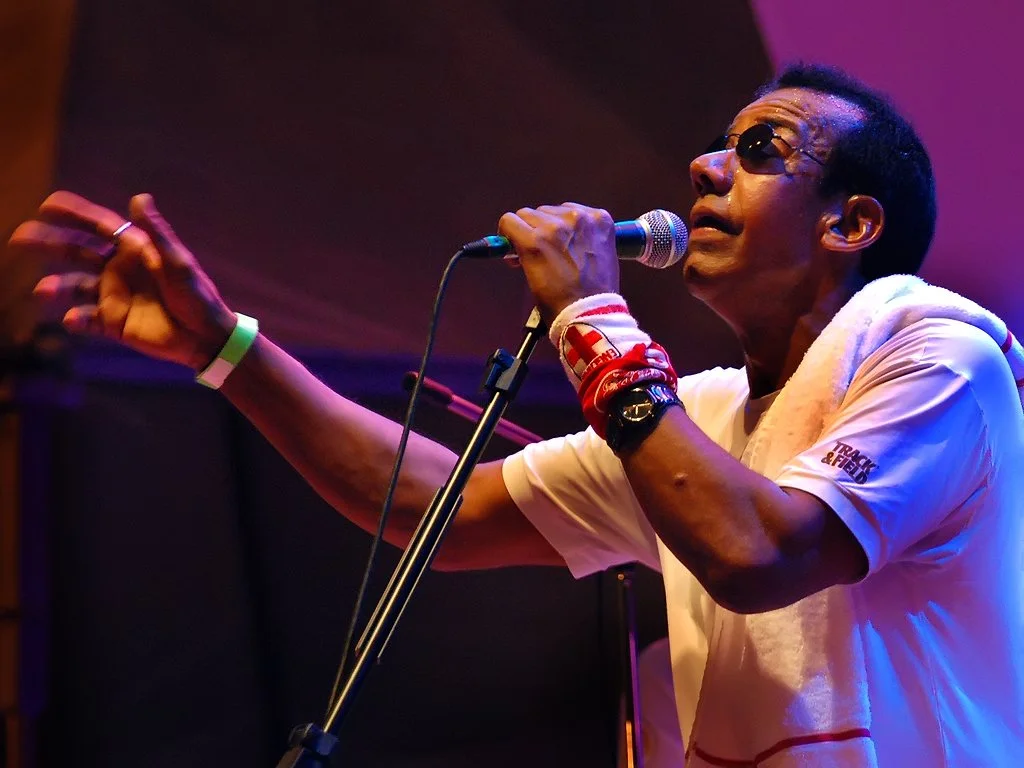“Umbabarauma” (Jorge Ben Jor)
Source: As fotos da Virada!, CC BY-SA 2.0 <https://creativecommons.org/licenses/by-sa/2.0>, via Wikimedia Commons
Jorge Ben Jor (born March 22, 1942) was able to make pointed, detailed, emotion-laden songs with just a few words or even sounds. Here’s one example, officially titled “Ponta de lança africana”/“African striker,” but more commonly known by that striker’s name, as indicated below.
“Umbabarauma”
Umbabarauma goal-man
Umbabarauma goal-man
Umbabarauma goal-man
Umbabarauma goal-man
Play ball, play ball
Corocondô*
Play ball, play ball
Player
Jump, jump, fall, get up
Run up, run down, cut back, shoot, open space
Cheer and be thankful
Look the whole city emptied out
On this beautiful afternoon just to see you play
Rere, rere, rere player
Rere, rere, rere corocondô
Rere, rere, rere player
Rere, rere, rere corocondô
Tererê, tererê, tererê, tererê, tererê goal-man
Tererê, tererê, tererê, tererê, tererê goal-man
This is the story of Umbabarauma
An African striker
A decisive striker
Umbabarauma
Umbabarauma goal-man
Umbabarauma goal-man
Umbabarauma goal-man
Umbabarauma goal-man
Umbabarauma goal-man
Umbabarauma goal-man
*Probably just an “African sounding” word to rhyme with “jogador”/“player” and create atmosphere. In his fascinating 2012 master’s thesis on Jorge Ben’s music, Renato Santoro Rezende posits:
Em “Ponta de lança africano (Umbabarauma)”, o que se ouve são palavras que, mais do que remeter a um significado específico, fazem com que os ouvintes criem uma associação com as línguas de origem africana. Palavras como “Corocondô”, “rere” e “tererê”, além do próprio nome do jogador “Umbabarauma”, parecem ter uma importância maior como figura rítmica e melódica do que uma função semântica.
In “Ponta de lança africano (Umbabarauma),” what we hear are words that, more than referring to a specific meaning, lead the listener to create an association with languages of African origin. Words like “corocondô,” “rere,” and “tererê,” in addition to the name of the player himself, “Umbabarauma,” seem to have greater importance as rhythmic and melodic figures than a semantic function.
